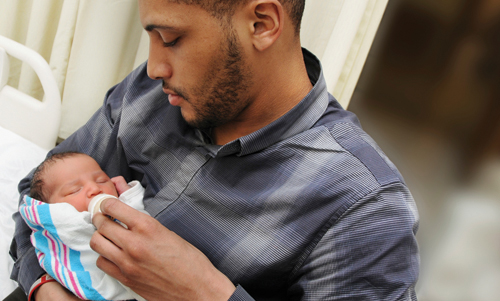The dangers of whooping cough for infants

Getting ready for a newborn baby at home involves lots of preparation. Though most parents think about cribs, car seats and diapers, few think about getting immunized for whooping cough (Pertussis).
Today, whooping cough is thought by most parents to be a disease of past generations. Unfortunately the Centers for Disease Control noted a large increase in early cases of whooping cough this year and believes that the United States will experience an epidemic of whooping cough at rates comparable to the 1950s. Though Pertussis in babies and young children is associated with a characteristic-sounding cough, in most adults whooping cough only presents as a prolonged cough. (Pertusiss is also known as the “100-day cough”). In many adults, it is misdiagnosed as a simple cough.
Unfortunately, Pertussis is highly contagious, and it’s most serious in newborns, particularly in the first six months of life. This is because newborns require time to develop an immune response from the immunizations that they receive typically at 2, 4 and 6 months.
Though most adults were immunized as children, this immunity lessens over time. This has led the CDC to recommend that pregnant women get immunized in the second half of pregnancy or in the early days following delivery. Though this strategy prevents mothers from being the source of infection, it has become well recognized that most infections now come from other people who care for the baby, like fathers and grandparents. To address this challenge, the CDC recommends that adults 19 years of age and older who didn’t get Tdap as a preteen or teen should get one dose of Tdap. This is ideally done before delivery.
To help parents protect themselves and their children, Christiana Care has begun a new program to provide Tdap vaccine to all family members over age 19 of babies born at the hospital. That’s about 6,500 families per year. A trained nurse approaches family members as they visit moms and their babies and asks that they roll up their sleeves and help to prevent this serious illness. Likewise these shots are made available to parents attending our prenatal classes.
To learn more about whooping cough, check out the Centers for Disease Control whooping cough fact sheet for parents.